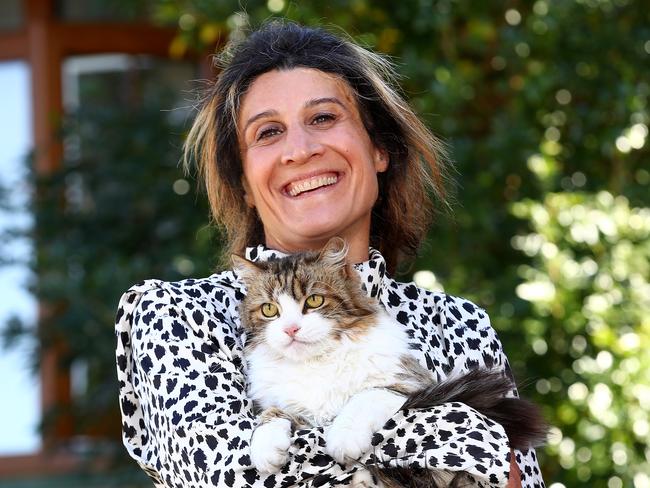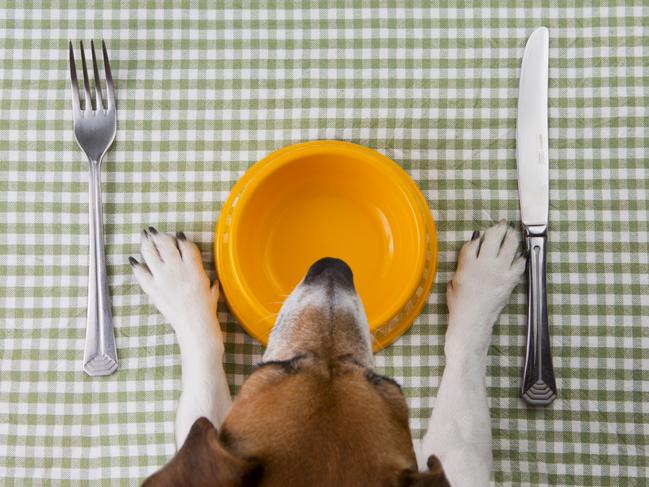What you need to know about your pet: one of Australia’s leading vets answers your questions
When is the best time to desex your puppy? Why does your cat keep biting its paw. What’s the best dog food for your furry best friend? Your pet questions answered.
If only our pets could speak our language, so many of our questions could be simply answered. Thankfully, we have people to help like Dr Magdoline Awad, who is the chief veterinary officer at Greencross The Pet Company.
As an experienced vet, Dr Mags has spent many years working in clinical practice, animal welfare organisations and pet insurance, and is dedicated to promoting animal health and welfare.
Each week, she will answer your questions to help you and your beloved pets enjoy a better life together.
QUESTION 1
My six-month old cat, Pickles, has been biting and pulling her fur off around her paws. We keep her inside at night so she is not bothering the wildlife but she keeps chewing at her legs and hisses when we try to distract her. What is happening here?
Cats will naturally self-groom and even chew their own nails as part of their daily cleaning routines – this is normal. However, biting and pulling the fur around her paws is not considered normal. Pickles could be chewing due to itch or irritation caused by allergies, a skin infection (which could be bacterial or fungal) or parasites (fleas or mites).

It may be a result of something causing her pain. In an older cat this could be due to arthritis. In a young cat, anxious behaviour may play a key role, especially if she prefers to be outside and is not able to be.
Overgrooming, whereby cats lick, bite or chew themselves, typically over their tummy, sides and back, is not uncommon. Ensure she is on adequate flea-control medication, given all-year round. There are some great products to assist cats to “chillax” that may be of benefit. Pickles’ chewing is clearly bothering her, so it’s important to book a consult with your vet for a thorough examination, especially as she is hissing when you distract her.
QUESTION 2
We bought a beautiful little pup during lockdown and are not sure when to get her desexed. Rascal is almost six months old and we are worried if we do it too young, her growth plates won’t be mature enough. But then there are issues waiting too long. What should we do?
The optimum age for desexing dogs remains a hot topic in the veterinary world and is a complex issue. Factors involved in the timing of desexing include gender, breed the inconveniences of female dogs coming into season, and the complexity of the surgery – which is more difficult in larger dogs.

Early desexing of female dogs will eliminate the risk of ovarian and uterine cancer and will also prevent pyometra, an infection of the uterus, while in male dogs it will eliminate testicular cancer and reduce the risk of certain prostatic disease.
One of the main reasons to desex at a younger age is to prevent unplanned litters. The age of desexing larger-breed dogs may be delayed until they are more mature and allow for bone growth to occur. Talk to your veterinarian so you can review all the factors and determine the best time for you – and Rascal.
QUESTION 3
Our family has two older dogs, aged six and 12. We often run out of dry dog food so as a back-up, we cook some veggies with oats and chicken or an egg. Are we doing the right thing or is this bad for them?
Long days and busy lifestyles seem to be the norm, so we need to make a conscious effort to shop not only for ourselves, but for our canine companions. Cooked vegetables and oats with chicken or an egg might seem very appealing for dogs to eat, but lack the essential ingredients and nutrients needed for a complete and balanced meal.

Dogs have different nutrient requirements to us humans, and they differ for a dog of six years – which is considered an adult – and a dog of 12 years – which, depending on the breed, is a senior.
While feeding the above may be OK for overnight or the very odd occasion when you run out of food, it may cause health problems for
longer periods. Remember to stay clear of onions and garlic as they are toxic to pets. Consider setting up a repeat pet food delivery ordering system, to ensure your canine pals don’t miss out.
GOT A PET QUERY?
Email smartdaily@news.com.au
Originally published as What you need to know about your pet: one of Australia’s leading vets answers your questions
